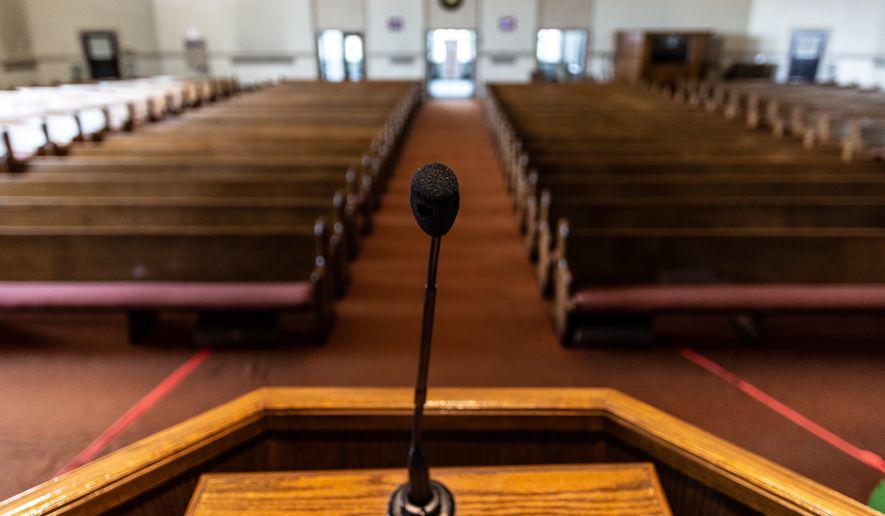Christians looking for a biblical worldview are much more likely to find it preached at a non-denominational church, a new study revealed Tuesday.
Three in ten evangelical pastors do not believe salvation is based on a personal relationship with Jesus and 70% of Black church pastors believe “reincarnation is a real possibility,” according to the American Worldview Inventory survey by Arizona Christian University’s Cultural Research Center.
While a “stunning erosion of biblical belief” was found across the church groupings in the survey, independent church pastors “were by far the most likely” to support basic Bible teachings, the group found. For example, only 34% of Catholic clergy said human life is sacred, while 61% of Catholics said the Bible is “ambiguous” on the question of abortion.
The poll found three-fourths or more of independent and non-denominational pastors held 12 biblical views surveyed, while between half to three-fourths of the pastors from those churches embraced a biblical perspective on the other five beliefs in question.
But among the other six denominational families surveyed—whose membership comprises than 90% of all Christian churches in America—none of those groups had at least three-quarters of their pastors holding biblical views on even half of the beliefs tested, a statement noted.
Such doctrinal shifts might help explain the rapid growth of non-denominational congregations. Writing in Christianity Today magazine this month, sociologist and American Baptist pastor Ryan Burge noted that 4,000 more non-denominational churches have sprung up in the U.S. between 2010 and 2020, with attendance at those congregations increasing by 6.5 million, a sharp contrast to departures from mainstream Christian groups.
George Barna, a veteran Christian pollster who is the Cultural Research Center’s research director, said a lack of spiritual disciplines among the pastors might be to blame.
“While studying the spiritual behavioral patterns of pastors, it became evident that a large share of them does not have a regular spiritual routine,” Mr. Barna said in a statement. “There was a correlation between possessing biblical beliefs and a consistent regimen of Bible reading, prayer, worship, and confession. For instance, one-third of all pastors do not read the Bible during a typical week.”
Those low numbers of Bible engagement are even worse in Holiness churches including the Christian & Missionary Alliance; Church of God – Anderson; Church of the Nazarene; The Salvation Army; and Seventh-day Adventist churches; as well as traditionally Black congregations, such as the African Methodist Episcopal (AME); AME Zion; National Baptist Convention of America; National Baptist Convention USA; National Primitive Baptist; and the Church of God in Christ.
In those churches, Mr. Barna said, the Bible-reading figure drops below half for pastors. He added, “That might be compared to a doctor not washing his hands before the operations he performs during a week; it’s unthinkable, almost unimaginable.”
More details on the survey are available online. This particular segment of the American Worldview Inventory 2022 survey was conducted last February and March among a sample of 1,000 pastors, and had an estimated maximum sampling error of plus or minus 3.2 percentage points, organizers said.
• Mark A. Kellner can be reached at mkellner@washingtontimes.com.




Please read our comment policy before commenting.